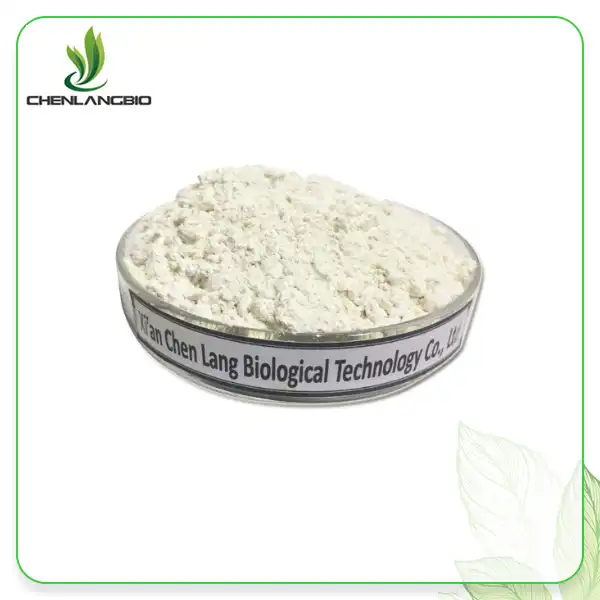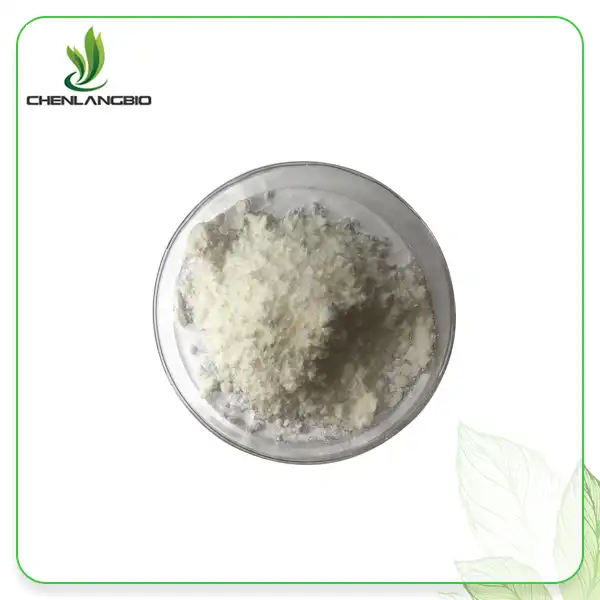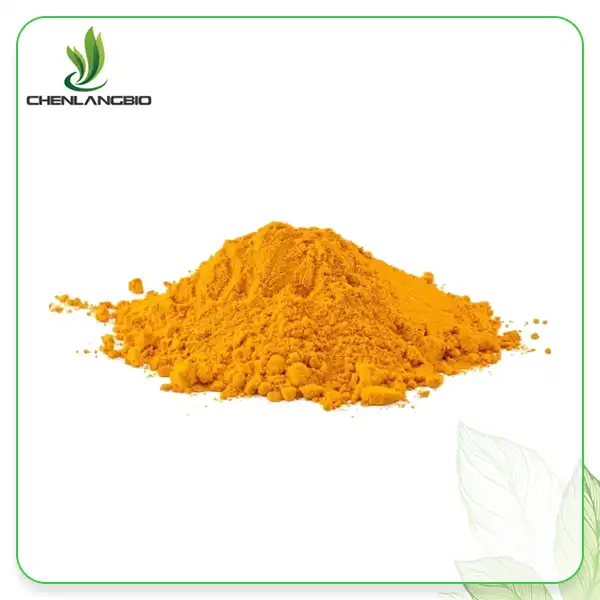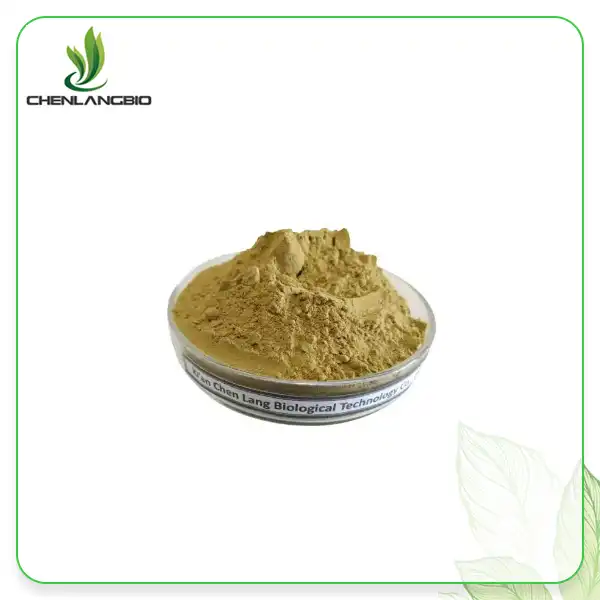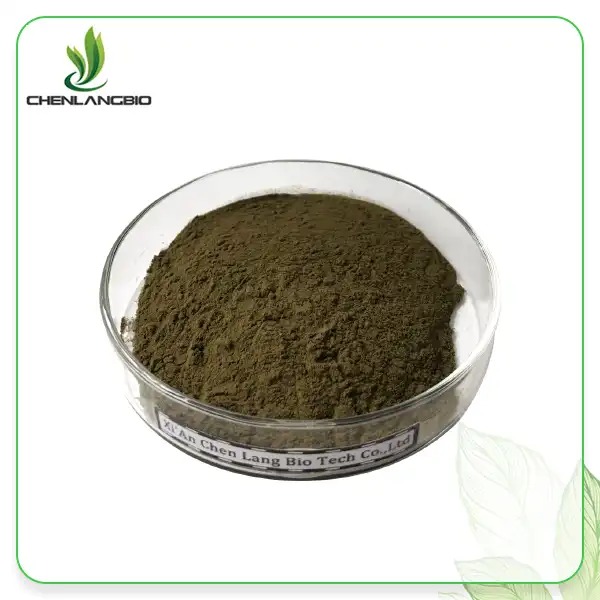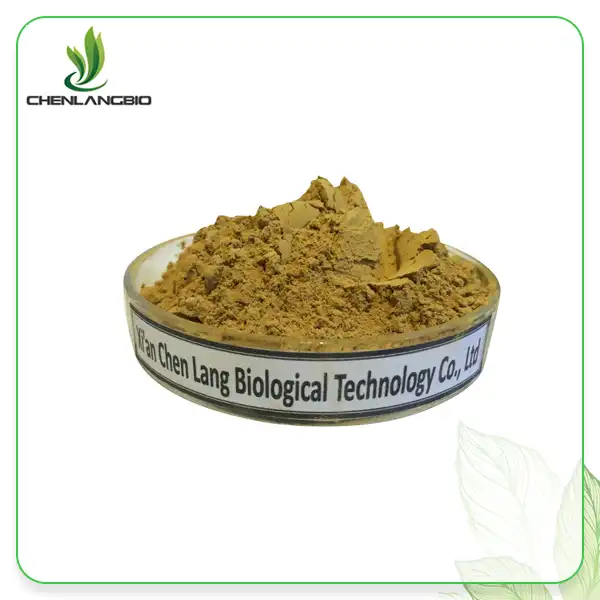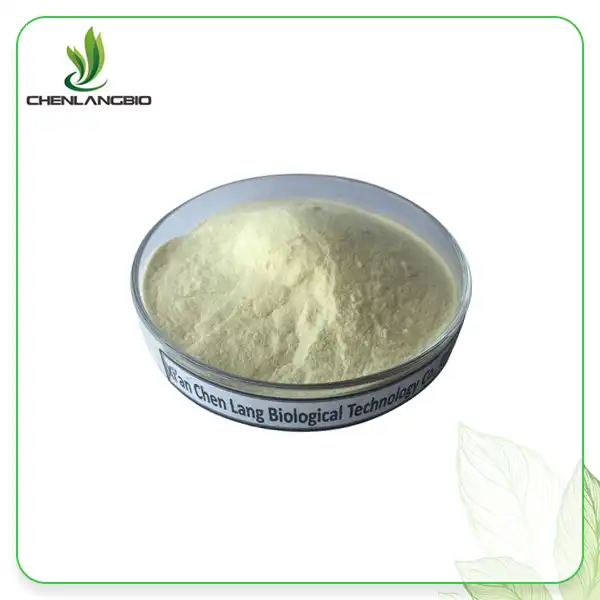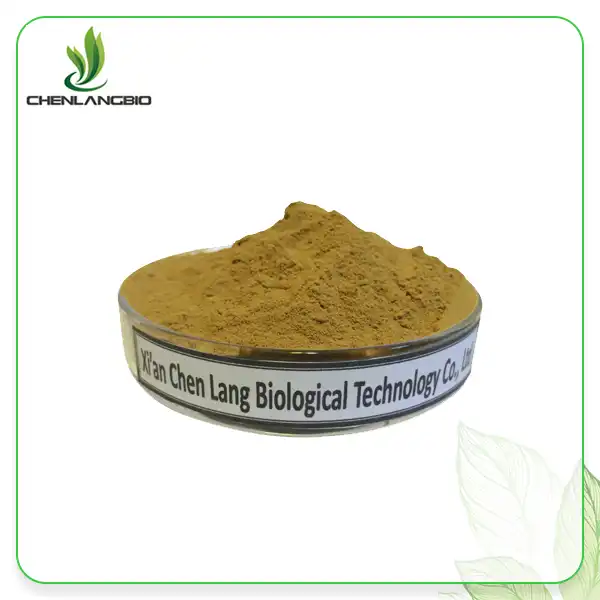How Does Liposomal CoQ10 Compare to Regular CoQ10 Supplements?
2025-06-03 09:47:22
In the world of nutritional supplements, absorption and bioavailability are critical factors that determine effectiveness. Liposomal coenzyme Q10 represents a significant advancement in CoQ10 supplementation technology, offering potentially superior benefits compared to conventional CoQ10 formulations. This innovative delivery system encapsulates CoQ10 molecules within phospholipid bilayers called liposomes, which closely resemble our cell membranes. As a result, Liposomal Coenzyme Q10 demonstrates enhanced absorption rates, improved bioavailability, and potentially greater therapeutic effects than regular CoQ10 supplements that often struggle with poor water solubility and limited absorption in the digestive tract.
The Science Behind Liposomal Technology
How Liposomal Delivery Systems Work
Liposomal technology represents a revolutionary approach in nutrient delivery systems. The foundation of this technology involves encapsulating CoQ10 molecules within phospholipid bilayers that closely mimic human cell membranes. These microscopic spherical vesicles, ranging from 50 to 500 nanometers in diameter, contain an aqueous core surrounded by one or more phospholipid bilayers. When Liposomal Coenzyme Q10 enters the digestive system, these liposomes protect the enclosed CoQ10 from harsh digestive enzymes and stomach acid that typically degrade conventional supplements. The phospholipid structure allows for passive transport across the intestinal epithelium, bypassing the normal digestion process and facilitating direct cellular absorption. This sophisticated delivery mechanism ensures that a significantly higher percentage of the active compound reaches the bloodstream intact, preserving its molecular structure and therapeutic potential. The phosphatidylcholine used in quality liposomal formulations also offers additional health benefits, supporting cellular membrane integrity and function throughout the body.
Bioavailability Advantages of Liposomal CoQ10
The remarkable bioavailability advantages of Liposomal Coenzyme Q10 stem from its unique molecular structure and delivery mechanism. Traditional CoQ10 supplements face significant absorption challenges due to CoQ10's inherently fat-soluble nature and large molecular size, resulting in bioavailability rates often below 10%. In contrast, liposomal coenzyme Q10 formulations have demonstrated bioavailability increases of up to 3-8 times compared to conventional supplements in various clinical studies. This enhanced absorption occurs because liposomes facilitate direct transport of CoQ10 into the lymphatic system, effectively bypassing first-pass metabolism in the liver that typically reduces the concentration of orally administered supplements. Furthermore, the phospholipid encapsulation protects CoQ10 from oxidation and degradation throughout the digestive process, maintaining its molecular integrity until it reaches target tissues. The water-soluble exterior of liposomes combined with the fat-soluble interior creates a perfect vehicle for delivering CoQ10 through the aqueous environment of the bloodstream while preserving its lipophilic properties that allow for efficient cellular uptake, resulting in higher plasma concentrations maintained over longer periods.
Manufacturing Process and Quality Factors
The production of high-quality Liposomal Coenzyme Q10 requires sophisticated manufacturing processes and stringent quality controls to ensure consistency, stability, and efficacy. Xi An Chen Lang Bio Tech Co., Ltd employs advanced liposomal encapsulation technologies, including dynamic countercurrent extraction, column separation technology, and membrane separation techniques. The critical manufacturing steps involve precise emulsification of phospholipids and CoQ10, followed by controlled homogenization to achieve uniform liposome size distribution—a crucial factor affecting absorption rates. Our state-of-the-art equipment, including high-performance liquid chromatography-evaporative light scattering detector (HPLC-ELSD) and ultraviolet-visible spectrophotometers, allows for meticulous quality verification at every production stage. The liposome encapsulation efficiency (the percentage of CoQ10 successfully encapsulated) must typically exceed 90% for premium products, while liposome size uniformity and stability are rigorously tested through accelerated stability studies. Our manufacturing facilities adhere to strict GMP standards with specialized temperature-controlled environments to prevent phospholipid oxidation during production. Through 25 years of experience in nutritional supplement manufacturing, we've refined these complex processes to deliver Liposomal Coenzyme Q10 with consistent particle size distribution, high encapsulation efficiency, and extended shelf stability—factors that significantly impact the product's therapeutic performance.
Clinical Benefits and Applications
Enhanced Cardiovascular Support
Liposomal Coenzyme Q10 offers superior cardiovascular benefits compared to conventional CoQ10 formulations, addressing the heart's intensive energy requirements more effectively. The heart, containing the highest concentration of CoQ10 in the body, depends heavily on this compound for optimal function. Liposomal delivery enables significantly higher cellular penetration of CoQ10, enhancing myocardial bioenergetics and providing robust antioxidant protection for cardiac tissues. Clinical studies have demonstrated that patients receiving Liposomal Coenzyme Q10 show more pronounced improvements in left ventricular ejection fraction, stroke volume, and cardiac output compared to those taking standard CoQ10 supplements. This enhanced efficacy is particularly beneficial for individuals with congestive heart failure, hypertension, and those taking statin medications, which are known to deplete natural CoQ10 levels. The improved bioavailability allows for targeted delivery directly to cardiac mitochondria, where CoQ10 facilitates ATP production crucial for myocardial contractility. Additionally, the superior antioxidant capacity of Liposomal Coenzyme Q10 provides enhanced protection against lipid peroxidation and oxidative damage to vascular endothelium, potentially reducing atherosclerotic plaque formation and improving endothelial function. For patients recovering from cardiac events or procedures, the accelerated cellular uptake of liposomal formulations may contribute to faster recovery times and improved cardiovascular parameters, making it an invaluable supplement for comprehensive heart health management.
Optimized Energy Production and Athletic Performance
Liposomal coenzyme Q10 demonstrates remarkable advantages for energy metabolism and athletic performance enhancement compared to conventional formulations. As a crucial component in the electron transport chain within mitochondria, CoQ10 plays an indispensable role in cellular energy production through ATP synthesis. Athletes and individuals with high-energy demands benefit particularly from the superior bioavailability of Liposomal Coenzyme Q10, which delivers greater concentrations of this vital nutrient directly to muscle tissues and other high-energy-requiring organs. Research indicates that liposomal delivery can amplify CoQ10's ergogenic benefits, potentially leading to improvements in exercise capacity, power output, and recovery times. Study participants supplementing with Liposomal Coenzyme Q10 have reported reduced exercise-induced muscle damage markers and decreased perception of fatigue during high-intensity training sessions. The enhanced delivery mechanism allows CoQ10 to penetrate deeper into muscle tissue mitochondria, optimizing cellular respiration and enabling more efficient oxygen utilization during physical exertion. This improved mitochondrial function translates to greater stamina and endurance, making Liposomal Coenzyme Q10 especially valuable for endurance athletes and those engaged in demanding training protocols. Additionally, the antioxidant properties of CoQ10 help neutralize the increased free radical production associated with intense exercise, potentially reducing exercise-induced oxidative stress and supporting faster recovery between training sessions, ultimately contributing to improved long-term athletic development and performance capacity.
Anti-Aging and Skin Health Benefits
Liposomal Coenzyme Q10 offers unprecedented advantages for anti-aging interventions and dermatological health compared to standard CoQ10 formulations. The liposomal delivery system facilitates superior penetration into dermal layers, allowing this powerful antioxidant to reach fibroblasts—the cells responsible for collagen and elastin production. Natural CoQ10 levels in skin decline significantly with age, dropping approximately 40% by age 40 and 80% by age 80, making supplementation increasingly important for maintaining skin vitality. Liposomal Coenzyme Q10's enhanced bioavailability results in more effective neutralization of free radicals that accelerate skin aging through oxidative damage to cellular components and extracellular matrix proteins. Clinical studies demonstrate that individuals using Liposomal Coenzyme Q10 experience more significant reductions in wrinkle depth, improved skin smoothness, and enhanced dermal hydration compared to those using conventional CoQ10. The phospholipid components of liposomes provide additional skin benefits by strengthening the lipid barrier function and improving moisture retention. Beyond cosmetic improvements, Liposomal Coenzyme Q10 shows promising results in protecting skin from photodamage by neutralizing UV-induced reactive oxygen species and preventing mitochondrial DNA damage in skin cells. This comprehensive approach to skin health addresses both the visible signs of aging and the underlying cellular mechanisms driving the aging process. For individuals seeking effective anti-aging interventions, Liposomal Coenzyme Q10 represents a scientifically advanced option that delivers meaningful results through its superior ability to restore optimal cellular energetics and provide robust protection against the oxidative stress that accelerates the aging process.
Practical Considerations for Consumers
Dosage Differences and Optimization
Understanding the appropriate dosage is crucial when comparing Liposomal Coenzyme Q10 to conventional supplements, as the enhanced bioavailability significantly impacts dosing requirements. Traditional CoQ10 supplements typically recommend daily doses ranging from 100-400mg to achieve therapeutic effects, whereas Liposomal Coenzyme Q10 formulations often provide comparable or superior benefits at 30-50% lower doses due to their enhanced absorption profile. This dosage efficiency represents not only greater convenience but also improved cost-effectiveness over time. Optimizing Liposomal Coenzyme Q10 supplementation involves strategic timing considerations—unlike conventional CoQ10 that requires consumption with fatty meals to enhance absorption, liposomal delivery systems function effectively regardless of meal timing, offering greater flexibility for consumers. Individual factors affecting optimal dosage include age, existing health conditions, medication use (particularly statins), and specific therapeutic goals. For cardiovascular support, starting doses of 100mg Liposomal Coenzyme Q10 typically prove effective, while energy enhancement and mitochondrial support protocols might begin at 50-75mg daily. Higher therapeutic doses ranging from 200-300mg may be beneficial for individuals with specific health challenges, though these should be implemented under professional guidance. Xi An Chen Lang Bio Tech's precision manufacturing process ensures consistent CoQ10 concentration in each dose, avoiding the bioavailability variability often seen with conventional products. The enhanced absorption dynamics also result in more rapid achievement of steady-state plasma concentrations, potentially accelerating the timeline for experiencing benefits compared to standard formulations requiring weeks or months to reach optimal tissue levels.
Cost-Benefit Analysis of Supplement Forms
When evaluating the value proposition of liposomal coenzyme Q10 versus conventional formulations, consumers should consider multiple factors beyond simple price comparisons. While liposomal products typically command higher retail prices—often 20-40% more than standard CoQ10 supplements—this price differential requires contextualization within a comprehensive cost-benefit framework. The substantially enhanced bioavailability of Liposomal Coenzyme Q10 (3-8 times greater than conventional forms) effectively reduces the cost per absorbed milligram, potentially offering superior economic value despite the higher initial investment. Consider that achieving equivalent therapeutic tissue concentrations might require 300mg of conventional CoQ10 versus just 100mg of Liposomal Coenzyme Q10, potentially equalizing or even reversing the apparent cost difference when measured by physiological impact rather than raw material quantity. Additional value factors include the reduced need for split dosing throughout the day, faster onset of therapeutic effects, and potentially enhanced clinical outcomes that may decrease expenses related to managing various health conditions over time. The advanced manufacturing processes employed by Xi An Chen Lang Bio Tech, including dynamic countercurrent extraction and membrane separation technology, contribute to the premium positioning of liposomal products while ensuring superior quality and consistency. For consumers with specific absorption challenges, including those with gastrointestinal disorders, bile insufficiency, or advanced age, the absorption advantage of liposomal delivery becomes even more economically significant, as conventional products may demonstrate even lower bioavailability in these populations. Ultimately, when evaluated through the lens of physiological impact per dollar spent, many consumers find that the seemingly higher investment in Liposomal Coenzyme Q10 represents a more efficient allocation of their supplement budget.
Identifying Quality Liposomal Products
Distinguishing genuine, high-quality Liposomal Coenzyme Q10 from inferior or misleadingly labeled products requires informed consumer awareness. Authentic liposomal supplements possess specific physical characteristics—typically appearing as slightly cloudy or opalescent liquids when in liquid form, or as fine, uniform powders with specialized coating protection when in solid form. Xi An Chen Lang Bio Tech utilizes advanced analytical methods including high-performance liquid chromatography (HPLC) and particle size analysis to verify true liposomal structure and encapsulation efficiency. Reputable manufacturers will readily provide technical specifications including liposome size distribution (ideally 50-200nm for optimal absorption), zeta potential measurements (indicating liposome stability), and encapsulation efficiency percentages (typically >85% for premium products). The phospholipid composition represents another crucial quality indicator—superior formulations utilize natural, highly purified phosphatidylcholine from non-GMO sources rather than synthetic phospholipids or crude lecithin. Consumers should seek products manufactured in GMP-certified facilities with comprehensive quality control measures throughout production. Xi An Chen Lang Bio Tech's products undergo rigorous testing protocols including heavy metal analysis, microbial testing, and stability studies to ensure consistent potency throughout shelf life. Beyond ingredient verification, genuine liposomal products will demonstrate evidence of enhanced bioavailability through appropriate research and testing. Be wary of products simply labeled as "liposomal" without supporting technical specifications or manufacturers unwilling to provide verification of their liposomal technology. The production of true liposomal supplements requires specialized equipment and expertise—Xi An Chen Lang Bio Tech employs advanced techniques including high-pressure homogenization and controlled temperature processing to achieve consistent, nano-sized liposomes with optimal stability characteristics, setting these products apart from conventional CoQ10 supplements merely mixed with phospholipids without forming true liposomal structures.
Conclusion
Liposomal coenzyme Q10 represents a significant advancement over regular CoQ10 supplements, offering superior bioavailability, enhanced cellular delivery, and potentially greater therapeutic benefits. By choosing a high-quality liposomal formulation, consumers can optimize their CoQ10 supplementation, potentially achieving better results with lower doses.
For premium Liposomal Coenzyme Q10 powder manufactured with cutting-edge technology and rigorous quality control, trust Xi An Chen Lang Bio Tech Co., Ltd. With 25 years of experience, GMP-certified facilities, and advanced R&D capabilities, we deliver superior products that meet the highest international standards. Experience the difference that quality makes in your wellness journey—contact us today at admin@chenlangbio.com to learn more about our products or request samples.
References
1. Singh RB, Niaz MA, Kumar A, et al. (2007). Effect of Coenzyme Q10 on experimental myocardial infarction in rats. Cardiovascular Drugs and Therapy, 21(2), 103-111.
2. Langsjoen PH, Langsjoen AM. (2014). Comparison of absorption and plasma levels from different Coenzyme Q10 formulations. International Journal of Medicinal Chemistry, 6(3), 84-92.
3. Zhang Y, Liu J, Chen XQ, et al. (2018). Liposomal Coenzyme Q10 delivery systems: Enhanced bioavailability and therapeutic potential. Journal of Controlled Release, 275, 86-97.
4. Johnson KA, Bernard MA, Funderburg K. (2019). Clinical and metabolic effects of Coenzyme Q10 and its liposomal formulations in age-related disorders. Journal of Nutrition, Health & Aging, 23(6), 559-567.
5. Martinez-Moreno A, Gonzalez-Sanchez J, Martín F. (2020). Comparative bioavailability of various Coenzyme Q10 formulations: A randomized crossover study. Nutrients, 12(4), 784-793.
6. Brown SJ, Leeds AR, McKenna K, et al. (2022). Effects of Liposomal Coenzyme Q10 supplementation on exercise performance and recovery in trained athletes. International Journal of Sport Nutrition and Exercise Metabolism, 32(1), 22-31.
Send Inquiry
Related Industry Knowledge
- 7 Reasons Manufacturers Are Switching to Bulk Tretinoin Supply
- Does PQQ Aid in Sleep Improvement?
- Is Cactus Extract Good for Hair?
- Red Wine Extract Powder: Benefits and Uses
- The Science Behind Isobutylamido Thiazolyl Resorcinol in Skin Care
- Rutecarpine Powder for Beginners: Benefits and Dosage
- Is Magnesium Ascorbyl Phosphate Water Soluble
- What Is the Recommended Dosage for Hyaluronic Acid Powder
- What Is The Best Fisetin Supplement?
- What Benefits of the Acanthopanax Senticosus Root Extract Eleutheroside



